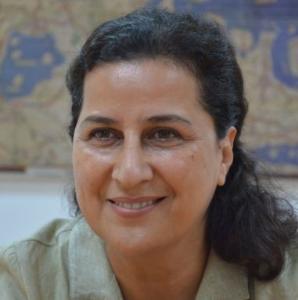Konferencë specialishtësh
Detaje
Security challenges in the Maghreb-Sahel belt are becoming ever more pressing. While collective security schemes falter in the face of regional and global rivalries, ad hoc cooperative security arrangements are on the rise. For Europe, North African security has long ceased to be an external concern as spill-over threatens EU internal cohesion. What forms of security cooperation can be conceived that avoid the pitfalls of well-known political obstacles that traditional schemes have been struggling to overcome? Could Europe play a more prominent role in ensuring North African security?
Program
Friday, 13 October 2017
09:00 Introduction
Dr. Canan Atilgan, Director Regional Program South Mediterranean, Konrad-Adenauer-Stiftung
09:30 Panel 1: North Africa: Key Challenges for Cooperative Security
The renewed escalation among the various factions in Libya risk entrenching the Libyan civil war as a nucleus of destabilization for North Africa, the Sahel, and Europe. The spread of militant extremism with its global spill over and the proliferation of trafficking of arms and human beings within and across North Africa, further exacerbate a bleak humanitarian and security picture. What are the latest developments concerning these three key security challenges? What are the most urgent steps of collective response required from regional and international actors to tackle them?
Moderator: Kristina Kausch, Senior Resident Fellow, German Marshall Fund, Brussels
- Libya: renewed escalation and regional reverberations
Mohamed Eljarh, Non-Resident Fellow, Atlantic Council, Libya
- Militant extremism in North Africa: latest developments
Aaron Y. Zelin, Richard Borow Fellow, Washington Institute for Near East Policy, Washington DC
- Contraband and organized crime
Mary Fitzgerald, Freelance Researcher & Journalist, Marseille
11:30 Panel 2: Collective Security Outfits in Wider North Africa: Do They Deliver?
While formal security alliances such as NATO and the African Union constitute the cornerstones of international security cooperation, these alliances have also suffered from internal political disagreements that have limited their credibility and efficiency as security providers. At a closer look at both the record and potential of AU, NATO, and European Security and Defense Policy (ESDP) in North Africa, can we still rely upon these institutions as main pillars of cooperative security?
Moderator: Charlotte Brandsma, Program Officer, Mediterranean Policy, German Marshall Fund, Brussels
- The African Union’s security engagement in the Maghreb-Sahel belt
Dr. Mohammed Ahmed Gain, President, African Institute for Peacebuilding and Conflict Transformation, Morocco
- The role of NATO in North African security: facts and potential
Vincenzo Camporini, Vice President, Istituto Affari Internazionali & former Chief of Staff, Italian Air Force, Rome
- The EU as a security guarantor for the Maghreb
Dr. Sven Biscop, Director, Europe in the World Programme, Egmont – Royal Institute for International Relations, Brussels
14:30 Panel 3: Successes and Failures of Cooperative Response
Within and beyond formal security arrangements, regional and global security actors – including also the Gulf States, Russia and China – have joined forces to tackle shared threats in a broad array of initiatives, not only in the Levant but increasingly also in North Africa. The quest to help end the Libyan civil war while containing regional spill over, ongoing efforts to prevent radicalization and counter the spread of violent extremism, and a new impetus to find a moderated solution to the Western Sahara conflict and end the Algerian-Moroccan diplomatic impasse, are key arenas to debate the potential of cooperative security options in North Africa.
Moderator: Koert Debeuf, Director, Tahrir Institute for Middle East Policy Europe, Brussels
- Harnessing the power of regional security providers: The case of Algeria and Morocco
Dr. Anouar Boukhars, Associate Professor, McDaniel College, USA
- EU-NATO cooperation in the southern neigborhood
Dr. Luis Simón, Director, Elcano Royal Institute, Brussels Office
- Western Sahara and its impact on Maghreb security
Intissar Fakir, Editor in Chief, Sada, Washington DC
19:30 Aperitif reception & dinner
Saturday, 14 October 2017
09:30 Panel 4: The Future of Maghreb Security
What is the future of cooperative security in the present geopolitical environment, and particularly in North Africa? What developments in international security cooperation are desirable, and which are likely? Who should take the lead? What major changes would we like to see in North African security cooperation ten years on?
Moderator: Kim Dozier, Executive Editor, The Cipher Brief, Washington DC
- Arab avenues toward Maghreb cooperative security
H.E. Youssef Amrani, Chargé de Mission, Royal Cabinet, Morocco
- Options for the US’ future role in Maghreb security
Vice Admiral Michael Franken, former Vice Deputy Commander, U.S. Africa Command
- Russia: Instrumentalizing conflict?
Dr. Nadia Arbatova, Head of Department, European Political Studies, Institute for World Economy and International Relations (IMEMO), Russian Academy of Sciences, Moscow
12:00 Dinner




